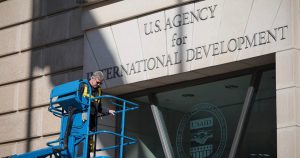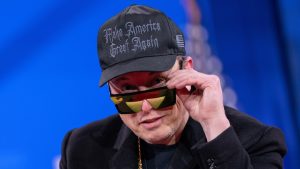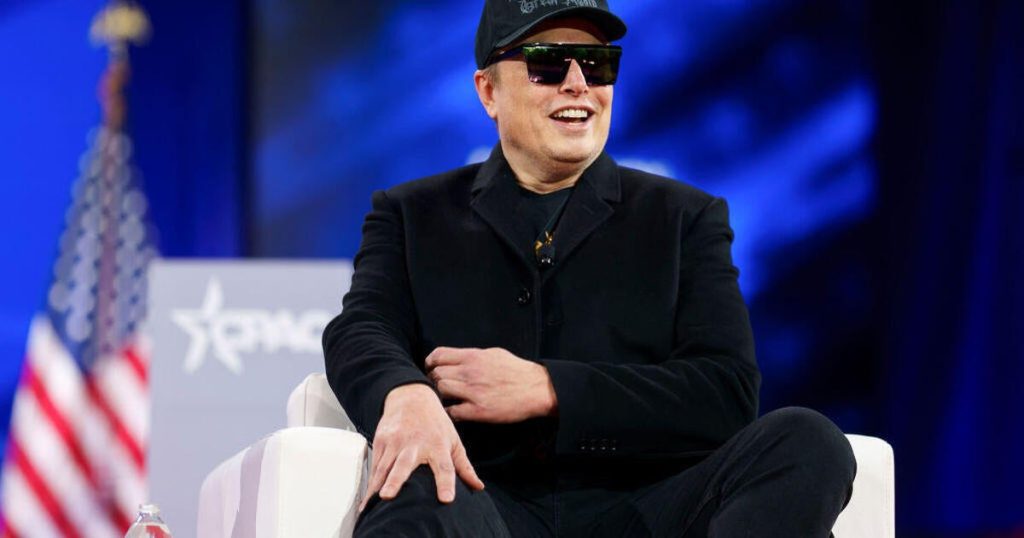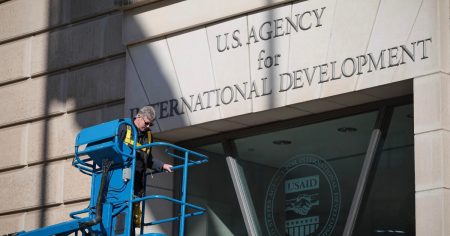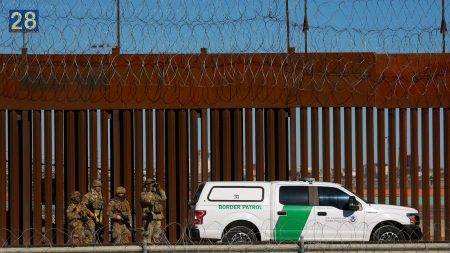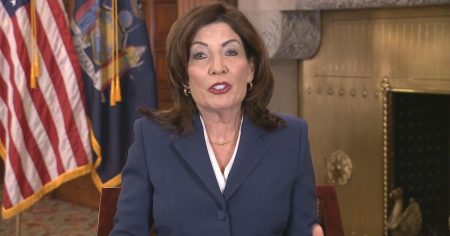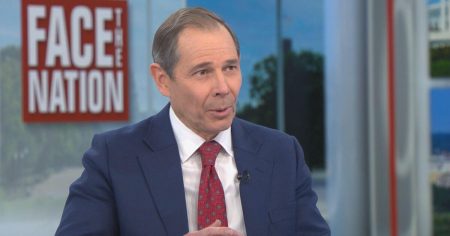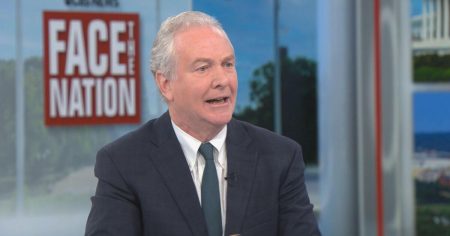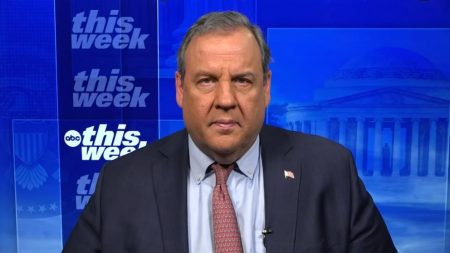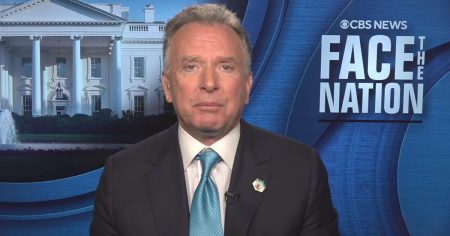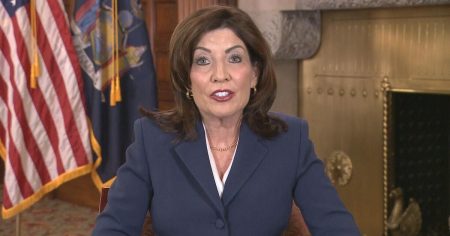Elon Musk’s Security Detail Gets Federal Deputy Status Amid Heightened Safety Concerns
In an unusual move, members of Elon Musk’s private security team have been deputized by the U.S. Marshals Service, according to four sources who spoke to CBS News. This designation grants Musk’s security personnel certain rights and protections typically afforded to federal law enforcement agents. The decision comes amid escalating concerns about the billionaire entrepreneur’s safety, fueled by multiple death threats in recent weeks. Musk, who has been in the public eye for his roles as CEO of Tesla and SpaceX, as well as his recent position as an advisor to former President Donald Trump, has reportedly faced heightened security risks.
Safety Fears and the Unusual Deputy Status
The Tesla CEO himself referenced these concerns during a speech at the Conservative Political Action Conference (CPAC) outside Washington, D.C. on Thursday. Musk recounted a conversation with President Nayib Bukele of El Salvador, who expressed worry about Musk’s security. "I’m like, ‘Dude, you are worried about my security?’" Musk joked, downplaying the situation. However, he also admitted, "It’s not enormous. Maybe it should be bigger," hinting at the need for a more robust security presence. While the exact details of the deputization remain unclear, it is understood that Musk’s team will now have the authority to carry weapons on federal property and potentially make arrests.
This move is not without controversy. The U.S. Marshals Service routinely deputizes police officers, especially during large events like presidential inaugurations, where thousands of additional law enforcement personnel are sworn in to assist with security. However, deputizing private security officers who are not sworn law enforcement officials is highly unconventional. It has raised eyebrows among legal and law enforcement experts, who question the precedent this sets.
Musk’s Role in the Trump Administration and Controversies
Musk’s heightened profile in recent months can be attributed, in part, to his role in the Trump administration. He was tapped by the former president to lead the Department of Government Efficiency, or DOGE, a new initiative aimed at streamlining federal operations. Since Trump took office last month, Musk’s team has been tasked with slashing thousands of federal positions across various agencies. This effort has drawn criticism, with many questioning the impact on government functionality and accountability. Additionally, DOGE has sparked controversy by seeking access to sensitive government data, raising concerns about privacy and security.
Despite these controversies, Musk’s personal security has become a growing concern. The U.S. Marshals Service, responsible for protecting federal judges, prosecutors, and court officials, has now taken the extraordinary step of deputizing his private security detail. This decision underscores the perceived threats to Musk’s safety and the administration’s willingness to take unconventional measures to address them.
Secret Service Protocols and the Limits of Private Security
The Secret Service, which typically provides protection for high-ranking government officials, including the president, vice president, and their families, has not been involved in Musk’s security arrangements. While the agency could theoretically assign a protective detail to Musk through an executive order from Trump, this has not happened. Instead, the U.S. Marshals Service has stepped in, deputizing Musk’s private guards. However, there are strict protocols in place regarding private security operating in federal buildings like the White House or the Treasury Building. For instance, Secret Service rules prohibit private security personnel from being armed within these premises, even if they are deputized.
This arrangement has left many questioning the logic behind deputizing private security officers. While it grants them certain federal protections and authorities, it also blurs the lines between public law enforcement and private security firms. Critics argue that this could set a dangerous precedent, potentially allowing private individuals with significant resources to wield undue influence over law enforcement powers.
Implications of the Deputy Status for Musk’s Security Team
The deputization of Musk’s security team by the U.S. Marshals Service is a significant development with far-reaching implications. On one hand, it reflects the growing awareness of the risks faced by high-profile individuals like Musk, who have become targets for various threats due to their influence and public prominence. On the other hand, it raises important questions about the role of private security in a democratic society and the potential for abuse when private entities are granted law enforcement powers.
As the situation unfolds, many are waiting to see how this arrangement will play out in practice. Will Musk’s deputized security team operate with the same level of accountability as sworn law enforcement officers? How will their actions be monitored and regulated? These are critical questions that must be addressed to ensure that the deputization does not undermine public trust in law enforcement or create a two-tiered system of justice.
The Broader Context of Security for High-Profile Individuals
Elon Musk is not the only high-profile figure under the protection of federal law enforcement. The U.S. Marshals Service is responsible for safeguarding more than 2,700 federal judges, 30,300 federal prosecutors and court officials, and numerous other government personnel. In addition, the Secret Service provides protection for key administration officials, including Homeland Security Secretary Kristi Noem and Treasury Secretary Scott Bessent. However, Musk’s case stands out because it involves the deputization of private security personnel, a move that is both unprecedented and highly contentious.
While the motivations behind this decision are understandable—given the real risks faced by Musk and other public figures—it is essential to consider the broader implications. Private security firms, unlike public law enforcement agencies, are not directly accountable to the public or subject to the same transparency and oversight mechanisms. Granting them federal law enforcement powers could lead to abuses of authority and erode the public’s trust in the justice system.
Conclusion: A Precedent-Setting Move with Far-Reaching Implications
The deputization of Elon Musk’s private security detail by the U.S. Marshals Service is a landmark decision that has sparked both curiosity and concern. While it highlights the unique challenges faced by high-profile individuals in today’s volatile world, it also raises critical questions about the appropriate role of private security in law enforcement and the potential for blurring the lines between public and private power.
As the situation continues to evolve, it will be important for lawmakers, law enforcement agencies, and the public to engage in a dialogue about the implications of this move. Striking the right balance between protecting the safety of influential figures and upholding the integrity of the justice system will be crucial in navigating this uncharted territory.

